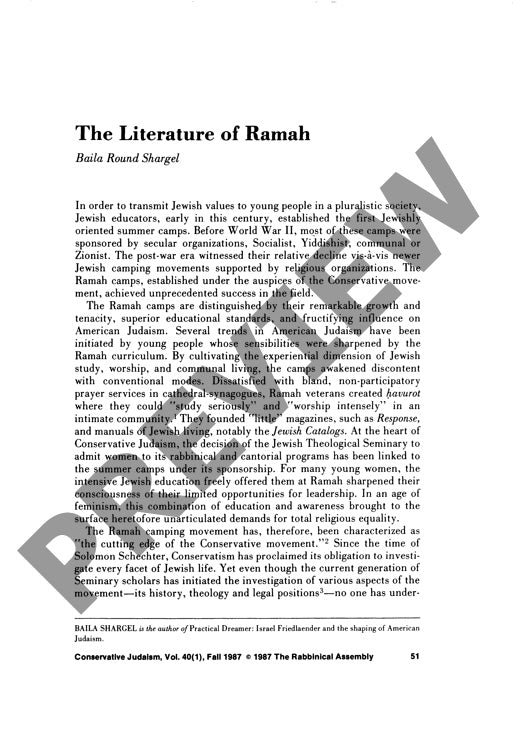The Literature of Ramah
Couldn't load pickup availability
For over seven decades, Camp Ramah has shaped Conservative Jewish education and leadership in America, yet scholarly understanding of its impact remains fragmented and contested. A comprehensive review of periodical articles and doctoral dissertations from 1947 through the 1980s reveals distinct phases in Ramah scholarship: early optimistic evaluations during the "socialization" period (1947-1955), controversial assessments amid the "existentialist" phase of the late 1960s and early 1970s, and sparse research thereafter. Participant-observers with extensive camp experience produced the most insightful analyses, while external critics often mischaracterized the movement based on limited exposure. The literature highlights persistent tensions within Ramah's mission: balancing educational innovation against institutional stability, Hebrew immersion versus open communication, and elite standards against broad accessibility. Though existing scholarship suffers from methodological limitations and ideological biases, it raises crucial questions about Ramah's educational philosophy, influence on Jewish identity formation, and role in developing American Jewish leaders. A rigorous longitudinal and comparative analysis of the Ramah movement is urgently needed, incorporating archival research, oral histories, and long-term impact assessment to fully understand this influential institution's contributions to Jewish education and American Judaism.

More Information
-
Physical Description
-
Publication Information
Published 1987
ISBN
-
Publication Credits
Baila Shargel

